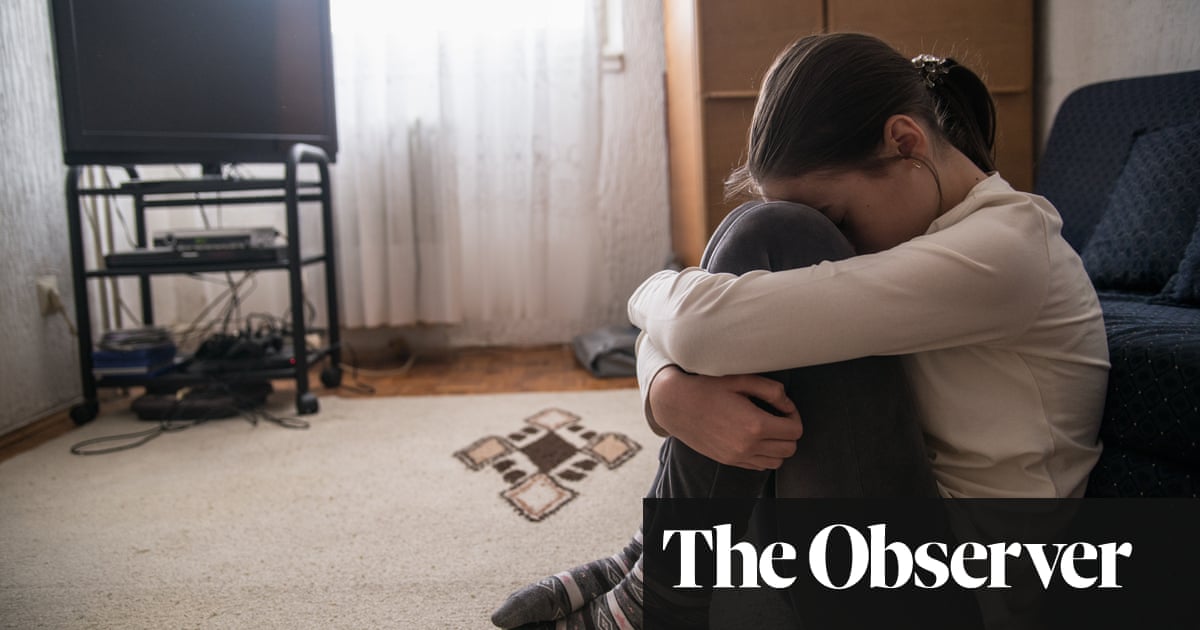Observer investigation finds that private companies made £105m despite not being registered with Ofsted
Hundreds of extremely vulnerable school-age children in England are being sent to illegal, unregulated homes every year because of a chronic shortage of places in secure local authority units.
An Observer investigation has established that councils placed 706 children, the majority of them under the age of 16, in their care in homes that were not registered with Ofsted, the children’s social care watchdog, in 2022-23.
Most of the providers that staff or operate unregulated homes are private companies. The investigation found that providers received nearly £105m from English councils last year – equating to almost £150,000 a child.
It is an offence under the Care Standards Act 2000 to operate a children’s home without an Ofsted registration, which the watchdog says prevents unsuitable people from owning, managing or working in homes. But the Observer has discovered that Ofsted did not prosecute a single provider in 2022-23, despite launching 845 investigations into suspected illegal children’s homes.
The children’s commissioner for England, Rachel de Souza, said she was appalled by the findings. “Some of these children will have experienced the worst trauma, abuse and neglect, with multiple and complex needs requiring genuine care – but instead they are placed in inappropriate settings which do not meet their needs, with little say in what happens to them, often miles from loved ones and sometimes denied basic rights like education.”
The illegal care system has expanded in recent years as local authorities have struggled to accommodate increasing numbers of vulnerable children, who pose a risk to themselves or others, or are being criminally or sexually exploited.
Many of these children, who often have troubled, traumatic pasts and histories of running away and getting into dangerous situations, are subject to court orders restricting their freedom, in order to keep them safe. However, there is a shortage of secure local authority-run homes that can provide therapeutic care in locked buildings. There are typically about 50 children each day awaiting a place.
As a result, family courts are having to authorise severe restrictions on children in unregistered homes, which range from rented properties and short-term holiday lets staffed by agency workers and security guards to supported accommodation designed for older children with minimal care needs. The staff, who are frequently required to restrain children, are not checked by Ofsted.
The new figures, compiled by the Observer and the charity Together Trust, show a 277% rise in numbers placed in illegal children’s homes in England between 2020 and 2023.
De Souza is particularly worried about children deprived of their liberty in unregistered placements: “These are the children with the highest level of need, in the country yet I often hear from children placed in makeshift, rented flats with no appropriate care in place.”
Few councils were prepared to name the companies involved, but the Observer obtained payment records from a handful of local authorities. Swindon borough council placed a child in a rented Airbnb property for a “short time” in 2022-23. The council said it placed the child there, with qualified staff, while it looked for suitable accommodation. Another council hired staff that year from two security companies to work alongside care workers in illegal children’s homes.
Ofsted said it needed new powers to take action against illegal providers, as it remained concerned that children were “at risk of harm” in unregistered homes. “The government promised additional powers in 2021 that would enable us to take action against illegal providers more quickly – these powers are urgently needed in the interests of children,” said a spokesperson.
Together Trust said council funding cutsleading to decline of community services, coupled with long delays for children in accessing mental health and disability support, have led to increased levels of need. “There remains a national shortage of safe, regulated homes for children in care, particularly those with complex needs,” said Lucy Croxton, the charity’s public affairs and campaigns manager.
The government has pledged to increase funding for secure children’s homes in recent years, including the building of two new secure homes in London and the West Midlands. The chancellor, Jeremy Hunt, announced in the March budget that the government would invest £165m over the next four years to increase the capacity of the children’s homes estate.
The Association of Directors of Children’s Services welcomed the funding but warned that it was a “drop in the ocean”. Andy Smith, its president, said councils were forced to use unregistered homes because of the lack of suitable places. “We know that 15 secure homes have closed since 2002 … there is a need for more than just two homes.”
The Department for Education said that all children in care deserve to live in settings that meet their needs and keep them safe.
“Local authorities are responsible for providing safe, appropriate homes for children, and are held to account for the quality of care they provide,” said a spokesperson.
The department added that all providers of care for children under 18 must be registered with Ofsted, which it said had powers to prosecute.
It said that the funding announced in the budget built on £259m previously announced by ministers to “expand the capacity of children’s homes”.



Can’t worry about silly things like ethics when all you care about is winning at capitalism… 🙄
I genuinely don’t think the people running these schemes think of kids in care (or poor people in general) as anything more than stock in their for-profit warehouse that is society.
They’re despicable beyond words.